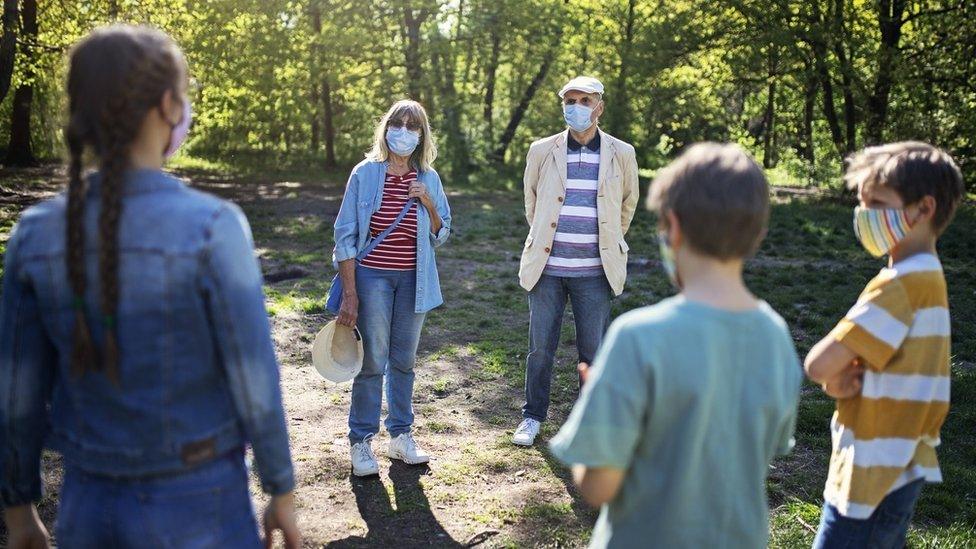Why is there a problem with getting a test for coronavirus in the UK?
- Published
- comments
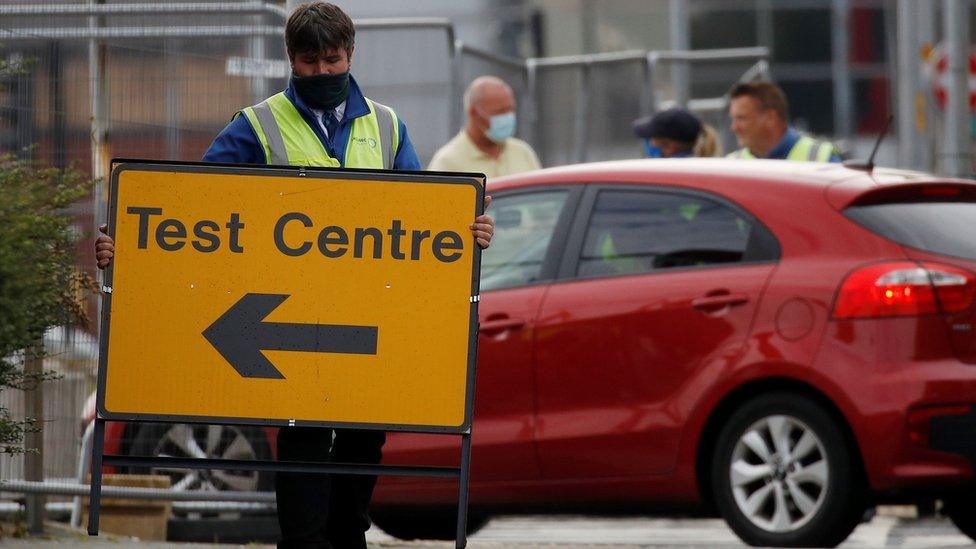
People living in parts of the UK have been struggling to get tested for coronavirus recently.
Many have been sent to testing centres hundreds of miles away or have not been able to book a test at all.
The government has said it will give details of who will be able to get coronavirus tests over the next few days. It's thought that top of the list will be NHS staff and patients, and those in care homes.
Health Secretary Matt Hancock said: "The top priority is and always has been acute clinical care. The next priority is social care, where we're now sending over 100,000 tests a day because we've all seen the risks this virus poses in care homes.
"We'll set out in full an updated prioritisation and I do not rule out further steps to make sure our tests are used according to those priorities."
Why is there a problem with getting a test for coronavirus in the UK?
Why is there a problem with tests?
To try to avoid long delays to results, the labs that check the tests say they can't receive too many.
Too many tests arriving at the lab will cause a backlog meaning people will either get late results or no results at all.
Last week, Sarah-Jane Marsh, a director of the government's test and trace programme in England, said coronavirus laboratories were at a "critical pinch-point".
"Can I please offer my heartfelt apologies to anyone who cannot get a Covid test at present," she said.
"All of our testing sites have capacity, which is why they don't look overcrowded, it's our laboratory processing that is the critical pinch-point. We are doing all we can to expand quickly."
According to a report by the Sunday Times newspaper there were 185,000 tests which hadn't been processed for results in laboratories last week, with some tests being sent to Italy and Germany to get results.
Labour's shadow health secretary, Jon Ashworth said: "People ill or with a sick child desperate for a test will be astonished that tests are piling up, left unprocessed, or even thrown away, because of errors in transportation and swabbing, while at the same time we are testing less than capacity."
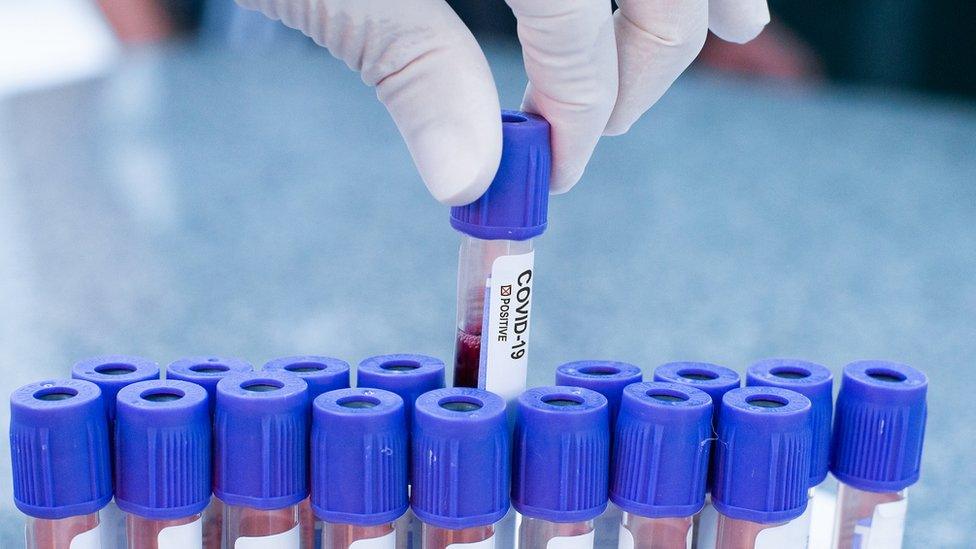
What's causing this?
As people have returned to work and schools have reopened, lots of people have applied to get tested to make sure they aren't risking spreading the disease.
The government's Health Secretary Matt Hancock said there had been a 25% increase in people coming forward for a test despite not having any symptoms.
"The problem we've got is that in the last couple of weeks we've seen a sharp rise in the number of people applying for a test, getting a test, who are not eligible - they don't have symptoms," he said.
Why are some people getting sent miles away for a test?
There is demand for testing in places where there is the biggest risk; for example in care homes where elderly people are more vulnerable to the virus.
The government is also prioritising areas of the country that have significant outbreaks of the disease; such as different towns and cities that are under local lockdown and are seeing more people becoming infected.
For those in other parts of the UK trying to get tested, this has meant being told they should go to centres that are sometimes hundreds of miles away, or in some cases being unable to book a test at all.
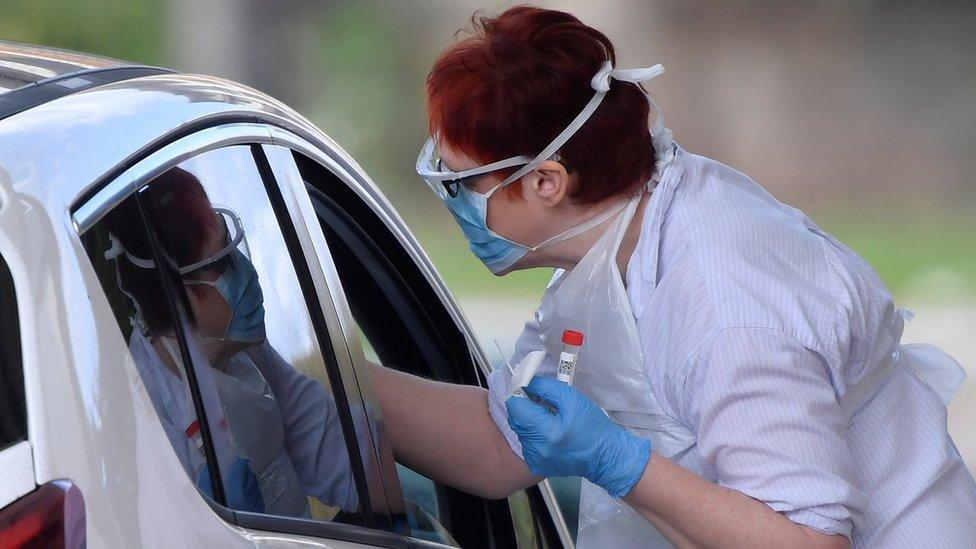
Sir Keir Starmer, leader of the opposition Labour party, says the government is dealing with testing badly: "The prime minister needs to know how anxious hundreds of families are - in the past week, they've been sent all over the country and told there are no tests," he said.
"It can't be brushed off. This is basic stuff . . . the prime minister needs to take responsibility."
Government Cabinet Office minister Michael Gove said: "We are increasing the number of tests. It is the case that the capacity every day is for 370,000 - we do want to do more."
He added that No 10 is working to reduce the pressure on laboratories with the creation of and so-called 'lighthouse labs', temporary facilities which will provide test results.
Under the Lighthouse labs programme there are also temporary testing centres.
Each temporary centre can normally carry out around 300 tests a day - but high demand has meant limits have been set for some, including in Wales where only 60 tests were allowed on Friday under a limit set by the UK government.
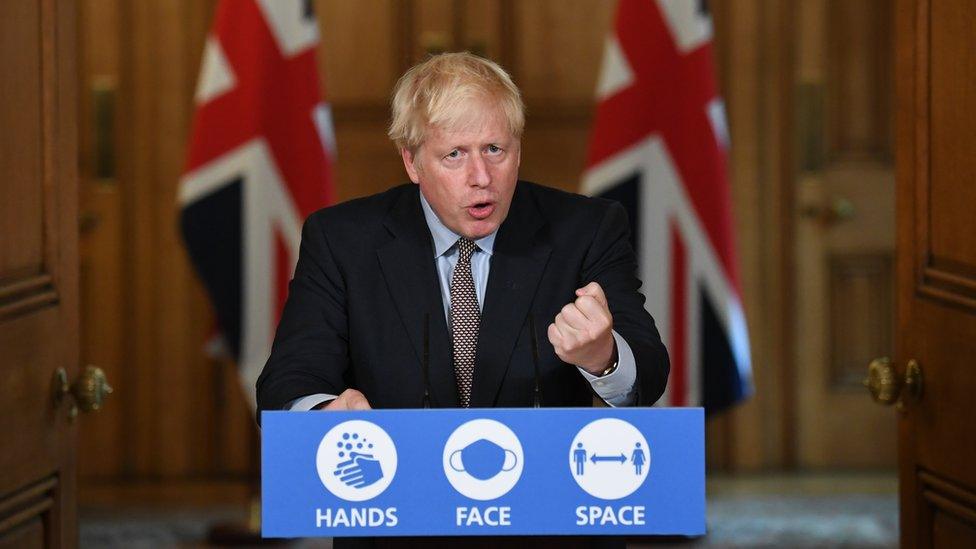
What next?
Prime Minister Boris Johnson says he wants to carry out 10 million tests a day in Britain by spring next year.
The plan called 'Operation Moonshot' would cost up to £100bn - which compares to the yearly NHS budget for England of £130bn.
Mr Johnson says his ambition is to see some tests results potentially being turned around in as little as 20 minutes, meaning people can live their lives as normal knowing it is safe to do so.
The PM said: "Up to now, we have used testing primarily to identify people who are positive - so we can isolate them from the community and protect high risk groups."
While he said that will "continue to be our priority", Mr Johnson said he wanted to "in the near future" begin to use testing to "identify people who are negative - who don't have coronavirus and who are not infectious".
He said this would allow them to "behave in a more normal way, in the knowledge they cannot infect anyone else with the virus".
- Published5 September 2020

- Published8 September 2020
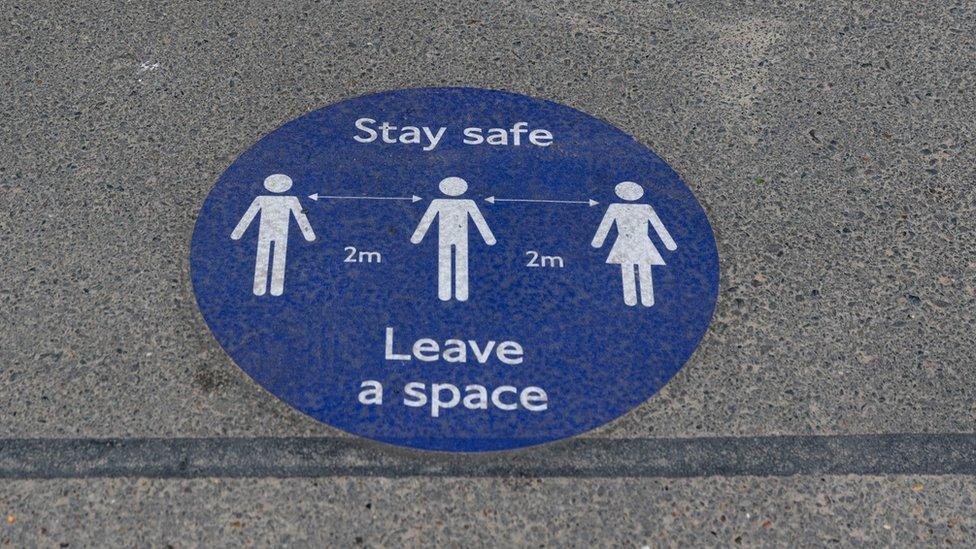
- Published11 September 2020
